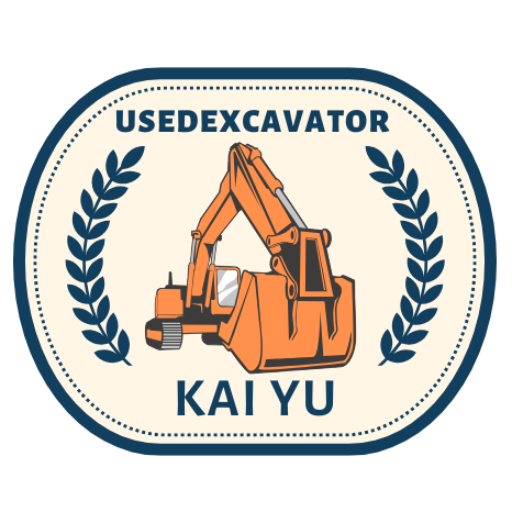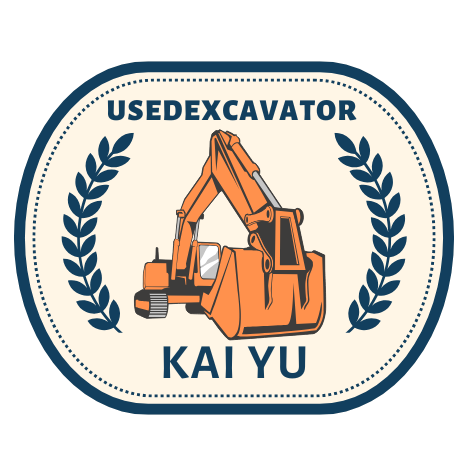When you’re in the market for construction equipment, you may come across terms like “used excavators” and “used diggers.” These two machines are often confused, but they actually have distinct features and purposes. In this article, we’ll break down the key differences and help you decide which machine is best suited for your project.
1. What is an Excavator?
An excavator is a large piece of heavy machinery used in construction, demolition, mining, and more. It is characterized by its long arm (called the boom), a bucket at the end (for digging), and a rotating platform (called the house) that allows it to turn 360 degrees.
- Common Features of Excavators:
- Tracked or Wheeled: Excavators can be found with either tracks (for rough terrain) or wheels (for faster travel on flat surfaces).
- Long Arm: Excavators are known for their extended boom arm, which allows them to dig deeper and reach farther.
- Versatility: The bucket can be swapped out for other attachments like grapples, drills, or breakers for different jobs.
- Uses of Excavators:
- Digging: Excavators are often used for digging foundations, trenches, or large holes.
- Lifting and Moving Materials: They can lift heavy loads and move materials around job sites.
- Demolition: Excavators are also used for tearing down buildings, breaking concrete, or removing debris.
2. What is a Digger?
The term digger is often used interchangeably with “excavator,” but in many regions, it specifically refers to a smaller type of excavator or a machine used mainly for digging tasks.
- Common Features of Diggers:
- Compact Size: Diggers tend to be smaller and more maneuverable than full-sized excavators. They are often used for work in tighter spaces.
- Hydraulic Arm: Like an excavator, a digger has a hydraulic arm with a bucket, but the arm is generally shorter, which limits its reach compared to a full-size excavator.
- Lightweight: Diggers are typically lighter and more agile, making them suitable for smaller projects or confined areas.
- Uses of Diggers:
- Digging Trenches and Holes: Diggers are perfect for smaller digging tasks, like digging trenches for utility lines or foundation footings.
- Landscaping: They are also popular for landscaping projects because of their smaller size and ability to work in tight spaces.
3. Key Differences Between Used Excavators and Used Diggers
While “excavator” and “digger” may seem like they refer to the same machine, they have several notable differences:
| Feature | Excavator | Digger |
|---|---|---|
| Size | Larger and more powerful, used for heavy-duty tasks. | Smaller and lighter, ideal for smaller jobs. |
| Reach | Longer arm for deeper, more extended digging. | Shorter arm, with less reach. |
| Terrain | Can work on various terrains, including rough ground. | Best for relatively flat and smooth surfaces. |
| Attachments | Can accommodate various attachments for versatility. | Primarily used with a digging bucket. |
| Cost | Typically more expensive due to its size and power. | More affordable for smaller budgets. |
4. Why Buy a Used Excavator or Digger?
Buying used construction equipment can be an excellent way to save money while still getting reliable machinery. Here’s why you might want to consider a used excavator or digger:
- Cost Savings: New excavators and diggers can be very expensive, so buying used allows you to get a high-quality machine at a fraction of the price.
- Depreciation: A new machine can lose significant value within the first few years. A used machine has already undergone this depreciation, so you’re getting better value for your investment.
- Availability: Used machines often come with a history of how they were maintained, which can give you peace of mind knowing the equipment has been well cared for.
However, it’s essential to inspect any used machinery carefully, check its maintenance records, and possibly even test it before making a purchase.
5. Which One is Right for Your Job?
Ultimately, the decision between a used excavator or a used digger depends on your specific needs:
- Choose an Excavator if you need a powerful, versatile machine that can handle large-scale projects like digging foundations, lifting heavy materials, or demolition.
- Choose a Digger if you’re working on smaller projects, especially in tight spaces where maneuverability is key. Diggers are great for landscaping or digging shallow trenches.
Final Thoughts
Both used excavators and diggers are essential tools in the construction and landscaping world, but understanding their differences will help you make the best choice for your project. Take the time to evaluate your needs, consider the equipment’s condition, and make sure you get the best value for your money when buying used machinery.


